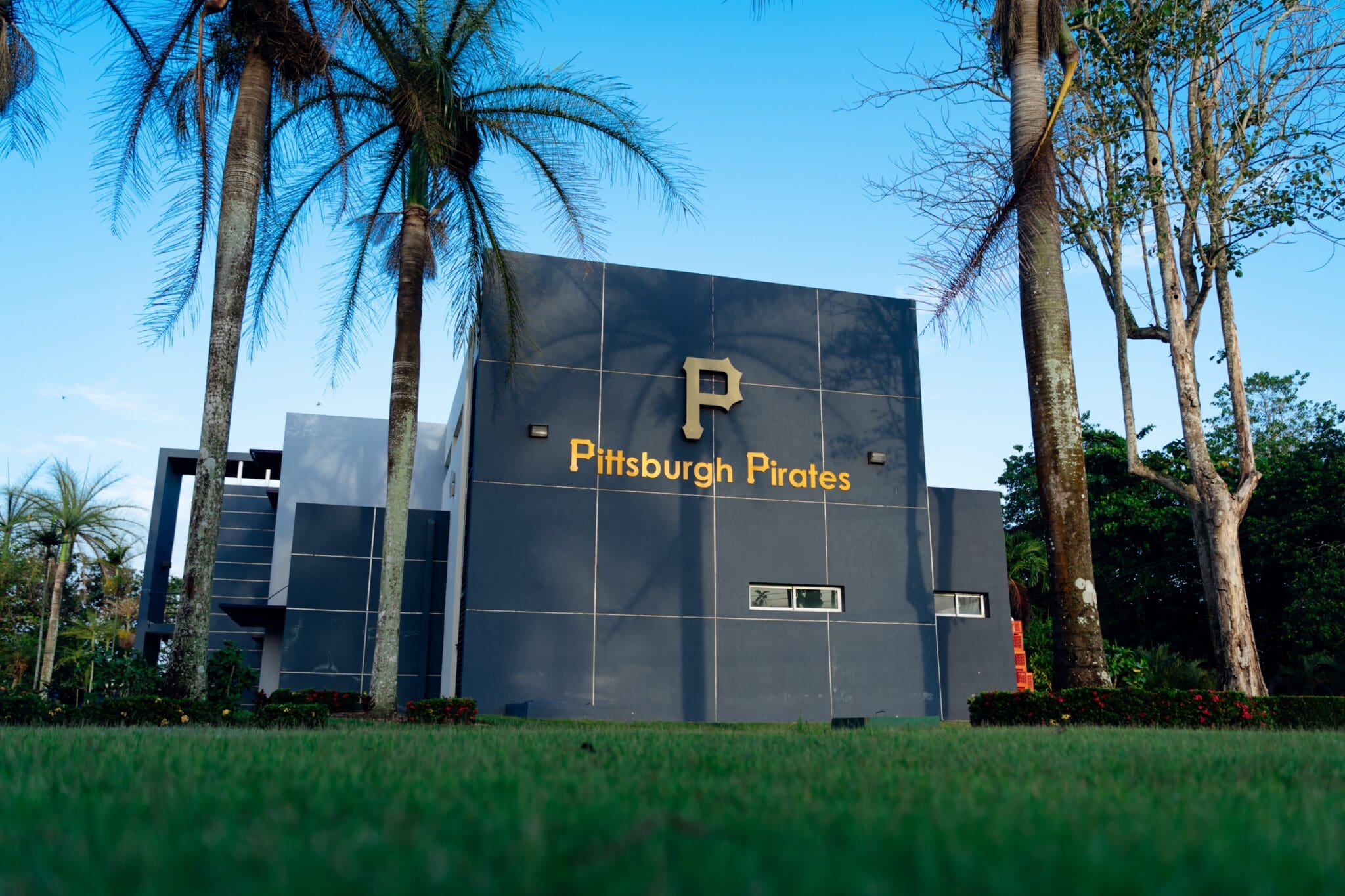Pirates Prospects
Logistics is Leadership: Managing the Pirates International System

This is the third in a series of stories giving fans an inside look at how the Pirates’ Dominican academy and international system operate.
The old adage goes that it takes a village to raise a child. The Pittsburgh Pirates bringing hundreds of young international baseball players into the fold as they work to reach the Major Leagues takes a symphony of moving pieces and unique concerns to cater to.
The Pirates’ Dominican Academy hosts 86 players at this time across their Gold and Black teams: 86 different people with different backgrounds to take into consideration, even before one counts players from elsewhere overseas or in different levels of the minor league hierarchy.
The onus falls on Hector Morales, the Pirates’ Director of International Development, to balance these considerations and help create a personalized plan for each player to succeed, both in life and in baseball.
“We have a player centered approach, so we always try to individualize the training that we do and the planning that we do for development…we have a system in place to communicate [the] needs of players,” Morales said. “As a player, situationally, if a red flag pops up, it’s immediately communicated through our system, through our coordinators, and we find a way to address it right away.”
A Perfect Fit
It’s hard to imagine someone better suited for the job. Born in Puerto Rico, Morales said he looks at the task of helping international players assimilate to life in the United States through the lens of his own experiences.
“I came to the US [mainland] as a non-English speaking person,” Morales said. “To work through my way and my profession, I know the challenges and I know how [that can] hold somebody back, so we try to make sure that we level the playing field for them.”
Morales said the Pirates leave no stone unturned as they help their players mature as athletes and as people.
A Scientific Approach
With a Ph.D in Sport and Exercise Psychology from Florida State University, Morales doesn’t just rely on his own experiences as he reaches out to the Pirates’ international players and organizes this whirlwind of considerations. Science plays a major role too.
“We do assessments for every single one of them. We try to identify where they are not only in their language, but other areas of development as well,” Morales said. “We’re talking about social-emotional learning, cognitive, all these different areas where an adolescent athlete is supposed to grow.”
As they try to get players up to speed for life in the United States, Morales said the jumps between levels of the minor league system mark critical positions to monitor an athlete’s progress.
“We do assessments and then we find a way to identify where we need to put the resources to get them ready for the transitions, what we call the seven transitions players go through [as they rise to the big leagues],” Morales said. “At every single one of those key points we have people in all areas that [look at] all the different variables that contribute to performance… an entire system that works in coordination to address these needs.”
Outside the Academy
While managing the Dominican Academy comes with challenges, it helps to have players in a centralized location with common backgrounds. Players from other countries like Taiwan or Cuba don’t have an established common culture to feed off of. They may be the only player from their country in the Pirates’ system at a given time, if not ever.
Morales said that the focus on personalized plans escalates in these situations. A player’s personal translator takes on a massive mentorship role.
“Every player that comes from Asia, from Japan, Korea, Taiwan, they come with their own translator,” Morales said. “That translator is with them and they have sent through the system to understand the things that we do…[they] help us help the players understand what we’re trying to do for them and their development.”
“Logistics is Part of Leadership”
Morales’ 26 year career in the military helps him balance this network of concerns. He left the Army a lieutenant colonel, so handling logistics is second nature at this point.
“I retired as a colonel…and logistics is part of leadership,” Morales said. “You’ve gotta see the plans, the contingency plans, and I transfer all that information as I try to help the younger leaders, the next generation of Pirates. The people who are gonna continue to help us build this team.”
Part I of this series can be found here; Part II of this series can be found here.















